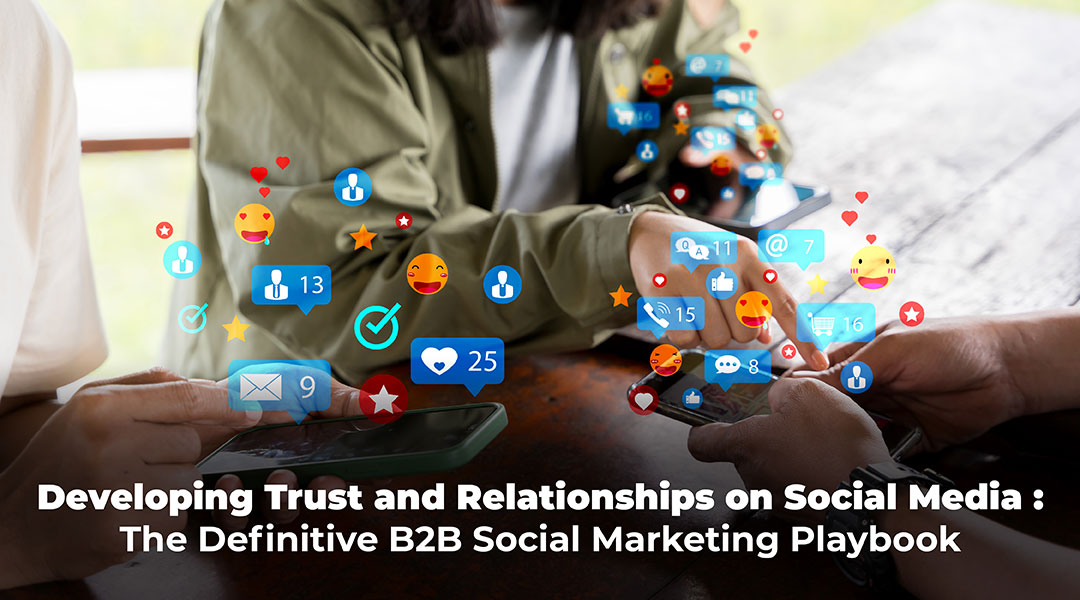
In today’s hyper connected digital landscape, social media has transcended personal communication to become a critical battleground for B2B marketing success. Gone are the days of impersonal, one-way corporate messaging. Modern businesses demand authentic, value-driven interactions that go beyond traditional sales pitches.
This comprehensive guide will demystify B2B social media marketing, providing actionable strategies to transform your digital presence from mere promotional noise to a powerful relationship-building platform.
The Evolution of B2B Social Media Marketing
Historical Context
- Pre-Social Media: Networking through conferences, trade shows
- Early Social Media: Basic company profiles
- Current Landscape: Strategic, relationship-focused engagement
Paradigm Shift in B2B Communication
Modern B2B marketing is characterized by:
- Transparency
- Value-driven content
- Two-way communication
- Personal brand development
- Trust-based relationship building
Why Trust Matters in B2B Social Marketing
1. Trust as a Competitive Advantage
In a world of information overload, trust is the ultimate differentiator. Businesses don’t just buy products—they invest in relationships with credible, reliable partners.
Trust-Building Elements
- Consistency
- Transparency
- Demonstrated expertise
- Social proof
- Genuine engagement
2. Psychology of B2B Decision-Making
Contrary to popular belief, B2B purchasing is deeply emotional:
- Fear of making wrong decisions
- Desire for professional validation
- Need for comprehensive understanding
- Seeking low-risk solutions
Strategic Platform Selection
LinkedIn: The B2B Networking Powerhouse
LinkedIn has become the go-to platform for B2B marketers, offering unparalleled Account-Based Marketing (ABM) capabilities. With almost every organization present on the platform, it provides:
- Precise targeting at company and job levels
- Personalized content delivery
- Enhanced opportunities for building long-term relationships with high-tier accounts
Reddit: The Emerging B2B Community Hub
Surprisingly, Reddit has carved out a significant niche in B2B marketing. A GWI Core Survey from Q2 2021 revealed that 48% of Redditors in Australia hold decision-making roles, making it a crucial platform for targeted engagement.
Meta: Advanced Targeting for Broader Reach
Meta’s platforms offer robust capabilities for B2B marketers, including:
- Diverse ad formats
- Hyper-targeting options
- Extensive reach across small, medium, and enterprise businesses
In one recent campaign, we observed a 20% increase in sign-ups by strategically using Meta for lead generation.
Connecting and Engaging: Key Strategies
1. Webinars: The Relationship-Building Tool
Webinars have emerged as a powerful method for B2B companies to:
- Showcase expertise
- Transfer knowledge
- Promote products and services
- Discuss industry trends
Our campaigns at Dentsu B2B have shown that event ads generate 2-3 times more engagement compared to traditional ad formats. The real magic lies in their ability to provide educational value while subtly positioning your brand as an industry expert.
2. Thought Leadership: Building Trust and Credibility
According to the 2024 B2B Thought Leadership Impact Report by Edelman and LinkedIn:
- 73% of decision-makers trust thought leadership content over traditional marketing materials
- 75% of readers are prompted to research a product after consuming thought leadership content
Effective thought leadership goes beyond promotional content. It:
- Encourages meaningful conversations
- Strengthens your position as a knowledge source
- Builds long-term trust with potential clients
Pro Tip: Utilize Thought Leader Ads on platforms like LinkedIn to amplify your message and extend your reach.
3. The Always-On Campaign Strategy
Traditional sporadic advertising is no longer sufficient. The Always-On campaign strategy ensures:
- Consistent brand visibility
- Continuous audience engagement
- Leveraging the psychological “mere-exposure effect”
Key elements of a successful Always-On approach:
- Regular educational posts
- Consistent thought leadership content
- Strategic use of engaging content formats
Content Format Insights:
- Video content tends to perform best for sustained engagement
- Image and carousel ads also show promising results
Content Strategy for B2B Social Marketing
1. Educational Content
- Industry trend analyses
- How-to guides
- Research reports
- Whitepaper summaries
- Expert interview excerpts
2. Thought Leadership
- Original research
- Innovative perspective articles
- Future trend predictions
- Solution-oriented content
- Technical deep dives
3. Social Proof
- Client testimonials
- Case study highlights
- Success metric visualizations
- Award and recognition sharing
- Performance benchmark insights
Measuring Social Media Trust and Relationship Building
Key Performance Indicators (KPIs)
1. Engagement Metrics
- Like and share rates
- Comment quality
- Interaction depth
- Follower growth rate
2. Conversion Metrics
- Lead generation
- Website traffic from social channels
- Content download rates
- Meeting/demo request volume
3. Relationship Quality Indicators
- Repeat interactions
- Long-term follower retention
- Referral volume
- Collaborative opportunities
Overcoming Common B2B Social Media Challenges
1. Content Creation Consistency
Strategies:
- Develop content calendar
- Repurpose existing materials
- Leverage user-generated content
- Collaborate with industry experts
- Use content templates
2. Managing Online Reputation
Approaches:
- Prompt, professional responses
- Transparent communication
- Constructive feedback handling
- Offline conversation escalation
- Continuous learning
Frequently Asked Questions
Q: How often should B2B companies post?
A: 3-5 high-quality posts weekly across platforms
Q: Which platform offers best B2B marketing ROI?
A: LinkedIn typically provides most direct business impact
Q: How to measure social media marketing effectiveness?
A: Track lead generation, engagement rates, and conversion metrics
Q: Can small businesses compete with larger brands?
A: Focus on niche expertise, authentic storytelling, and targeted engagement
Q: What content works best for B2B marketing?
A: Educational content, case studies, and industry insights
Conclusion
Social media has revolutionized B2B marketing from transactional interactions to meaningful, trust-based relationships. By focusing on value, authenticity, and strategic engagement, businesses can transform their digital presence into a powerful relationship-building platform.
Ready to revolutionize your B2B social media strategy? Share your biggest social media challenge in the comments and let’s discuss!
Post Comment